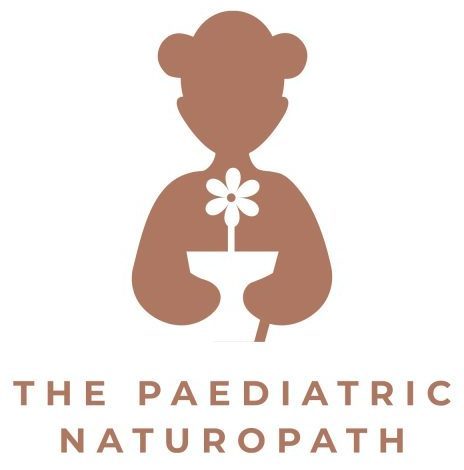Everybody is different.
Some people (and children) tend towards being a bit anxious.
Others seem totally carefree.
This purpose of this article is not to “pathologize” your child’s unique personality. The purpose of this article is to give you tips and tricks to help your child feel more comfortable doing day to day activities, and not be ruled by their own internal voices and fears.
The first intervention people think of then their child is anxious is a psychologist.
There is no doubt that a good child psychologist is worth their weight in gold.
But there are other ‘organic’ or physiological causes of anxiety which can be addressed too. Combining a nutritional approach with psychological intervention is a perfect combo, as the child learns skills to deal with their emotions at the same time that the intensity of these emotions is dialled down.
Blood sugar regulation
The first place to start is blood sugar regulation.
When a child is eating high glycemic carbohydrates, their blood sugar will be going up and down all day. This can cause anxiety when their blood sugar is too low (hypoglycemia).
This is reasonably easily addressed by making sure your child’s diet is low glycemic index (read all about that here).
Make sure your child has small, frequent meals or snacks (however not grazing, you still want to have distinct meal and snack times), and make sure meals and snacks contain some protein and fat every time. If you wanted to take it further, you could do a hair analysis and check for your child’s chromium levels. Chromium is a very important nutrient for blood sugar regulation, and some people will need a supplement to keep their blood sugar balanced.
Caffeine
If your child is consuming caffeine and experiencing anxiety, they should cut out the caffeine and see how they feel. Caffeine isn’t just found in coffee. It is also in chocolate, some soft drinks, energy drinks, chocolate and tea. So if your child consumes any of those, try cutting them out. There is a huge variation in how people metabolise caffeine. We all know that person who can have an espresso at 10.30pm and go straight to bed. But we also know people who can’t have coffee after 11am, or they won’t sleep. One of your kids might be able to drink coke every day and have no anxiety issues, and in your other child it can cause massive issues. Of course, even if it isn’t causing anxiety issues, it is still causing a myriad of other issues!
Histamine
How about histamines? Does your anxious child also have itchy eyes and a runny nose? Histamine is an excitatory neurotransmitter, and when it’s too high it can lead to anxiety. If this seems to be the issue, a low histamine diet can help, as can taking supplements which reduce the load of histamine in the body. It is also helpful to avoid triggers like food allergens or environmental allergens.
Glutamate
Is your child a vegemite lover? Do you have takeaways or processed food in the house? Have you moved to diet coke to avoid sugar? Too much glutamate can be lead to feelings of anxiety, along with speech delay and irritability. You may need to reduce foods high in glutamate like MSG, vegemite, parmesan cheese, artificial sweeteners and soy sauce.
Essential fatty acids
If there isn’t enough fish in your diet, your child might be low in essential fatty acids, which are important for brain and mental health. Children without enough essential fatty acids in their diet might also have dandruff or rough skin. Include fish once or twice per week to ensure good essential fatty acid levels, and keep packaged food to a minimum.
Serotonin
Some children (and adults) might not make enough serotonin. This might be because they are stressed, for genetic reasons or because they don’t have the building block nutrients in their diet to make the serotonin. You can figure out if low serotonin is the problem by doing an organic acids test which looks at all the neurotransmitters, and also works out if there is an underlying infection which might be blocking the production of serotonin. An easy way to boost serotonin is to introduce some mindfulness practice for your child. It is also important to ensure optimal gut health and make sure all the nutrients are in the diet to produce serotonin. A starchy snack at bedtime might be helpful too.
Magnesium
Many Australian kids are low in magnesium. Partly because children are generally not consuming enough high magnesium foods, but also because foods don’t contain as many minerals as they did 50 years ago. A hair tissue mineral analysis is a handy way to check magnesium levels, or you could just make a big effort to increase magnesium rich foods in the diet like leafy greens, nuts and seeds. Hint – if your child is really sensitive to noise or sound, this could be the issue!
Food allergy
Food intolerance or allergy can cause enough irritation to the nervous system that they lead to symptoms of anxiety. An elimination diet or allergy test will enlighten you as to which foods might be causing an issue for your child.
Pyroluria
And finally, there is a condition called pyroluria (or pyrolles) which can lead to anxiety in kids. People with this condition have low vitamin B6 and zinc levels. This can lead to anxiety, irritability and depression. When children are low in zinc, they may also have poor immunity and growth, and might be slow to reach puberty. If you suspect this might be an issue, you can do a urine test to find out, and then work on rebuilding gut health and give appropriate supplementation.
Summary
I hope this has given you some insight into how you can get to the root cause of your child’s anxiety, and how you can use food and nutrients to help children have a happier, more contented childhood. If you would like to discuss your child personally, please make an appointment using this link.




